SwiftUI + SwiftData + Rust Domain Core
SwiftUI -> Rust -> SwiftData
Finding Nirvana through UniFFI
Create the crate
Create the rust core crate.
cargo new --lib core-functionality
The majority of our functionality will go in this crate.
Make it Importable
Edit the Cargo.toml file and make it a c-library
[lib]
crate-type = ["cdylib", "staticlib"]
name = "corefunctionality"
staticlib is only needed if you plan to target iOS
note:: We use a c-library because that's what Swift can import
Let's write some rust code now
Overview of what we are building
We are going to make a very basic todo list because that's what everyone does.
We are going to use a Command/Event structure where the frontend sends commands to the domain, and the domain responds with Events of what happened in the domain.
classDiagram class ToDo ToDo: +u32 id ToDo: +String item ToDo: +bool completed Command : +run() Vec~Event~ AddTodo : +u32 id AddTodo : +String item class Event Event : +EventKind kind Event : +apply(Command) ToDo
Domain Object
struct ToDo {
id: u32,
description: String,
status: bool, // Just to keep it simple
}
Commands
Commands are simply an Enum
#[derive(Debug)]
pub enum Command {
AddTodo(u32, String),
CompleteTodo(u32),
IncompleteTodo(u32),
EditTodo(u32, String),
}
Events
Events are also simply an Enum, always past tense
pub enum Event {
TodoCreated(u32, String),
TodoStatusSet(u32, bool),
TodoDescriptionSet(u32, String),
}
The Runner
We need a way to run the commands, manage the memory for the commands, and call the event handlers. That's where the runner comes in.
To The IDE
note: tag is step01, show the lib.rs and the following in this order: Command, Event, EventHandler, RunnerError, Runner
Adding the interop
Dependencies
[dependencies]
uniffi = { "version" = "0.26", features = ["cli"] }
[build-dependencies]
uniffi = { "version" = "0.26", features = ["build"] }
We need cli so that we can automate running uniffi-bindgen
build.rs
This will read the interface definition and output rust
fn main() {
uniffi::generate_scaffolding("src/corefunctionality.udl")
.expect("Unable to parse the udl for interop");
}
Update lib.rs
Add this to the bottom of your lib.rs
uniffi::include_scaffolding!("corefunctionality");
This loads in the generated code from bindgen
TO THE IDE
note:: tag is step01, show udl
Let's build the swift module
#!/usr/bin/env bash
LIBRARY_NAME=corefunctionality
set -e
SCRIPT_DIR=$( cd -- "$( dirname -- "${BASH_SOURCE[0]}" )" &> /dev/null && pwd )
cd ${SCRIPT_DIR}
cargo build --release
cargo run --release --bin uniffi-bindgen generate --library target/release/lib${LIBRARY_NAME}.dylib --language swift --out-dir target/swift -n
swiftc -module-name ${LIBRARY_NAME} \
-emit-library -o lib${LIBRARY_NAME}.dylib \
-emit-module -emit-module-path ./interop/ \
-parse-as-library \
-L ./target/release/ \
-l${LIBRARY_NAME} \
-Xcc -fmodule-map-file=./target/swift/${LIBRARY_NAME}FFI.modulemap \
target/swift/${LIBRARY_NAME}.swift
Create the binary to run bindgen
fn main() {
uniffi::uniffi_bindgen_main();
}
And update Cargo.toml
[[bin]]
name = "uniffi-bindgen"
path = "bin/uniffi-bindgen.rs"
Run the build script
If nothing outputs, make sure you included the scaffolding in lib.rs
uniffi::include_scaffolding!("corefunctionality");
Create a basic swift project
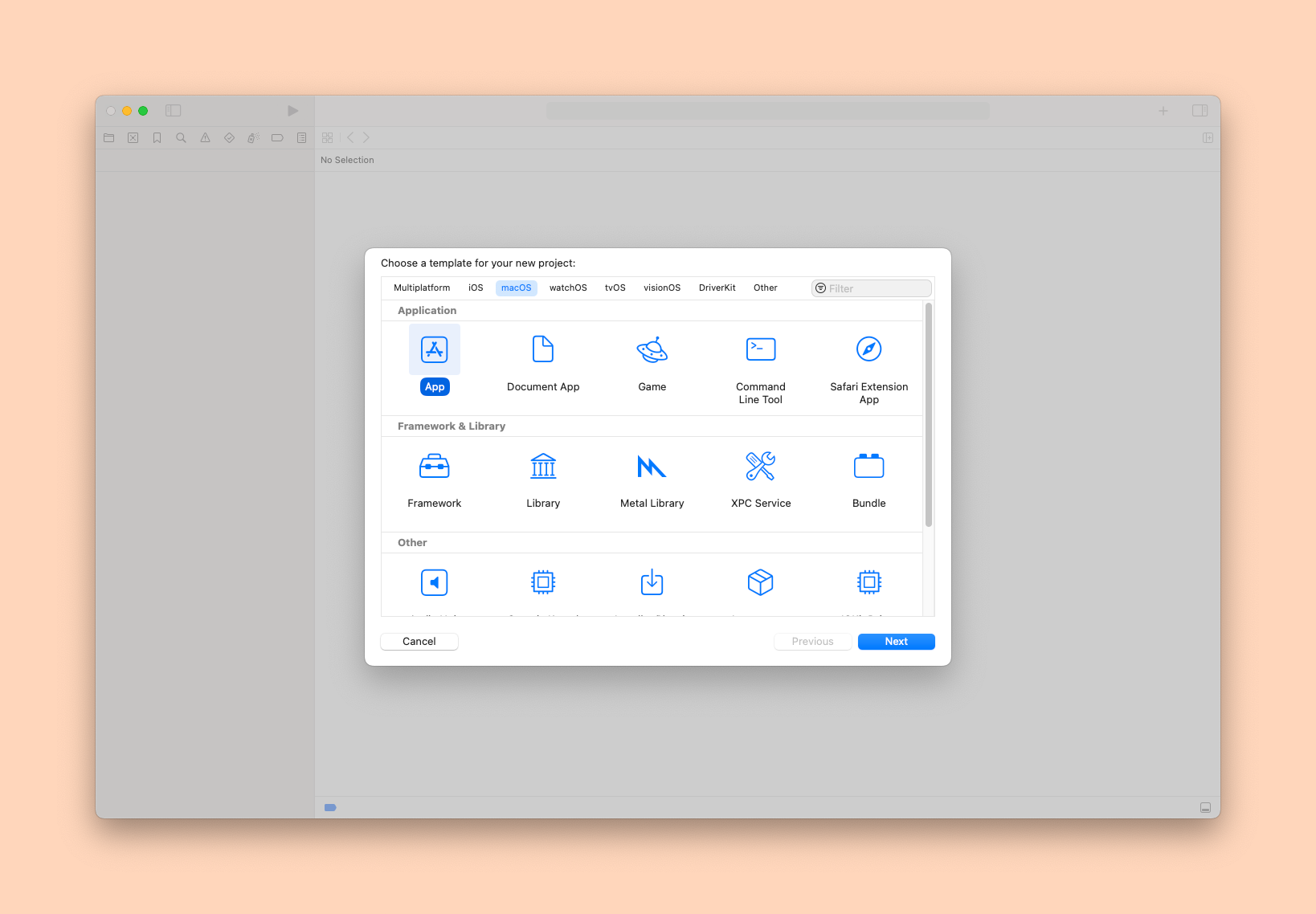
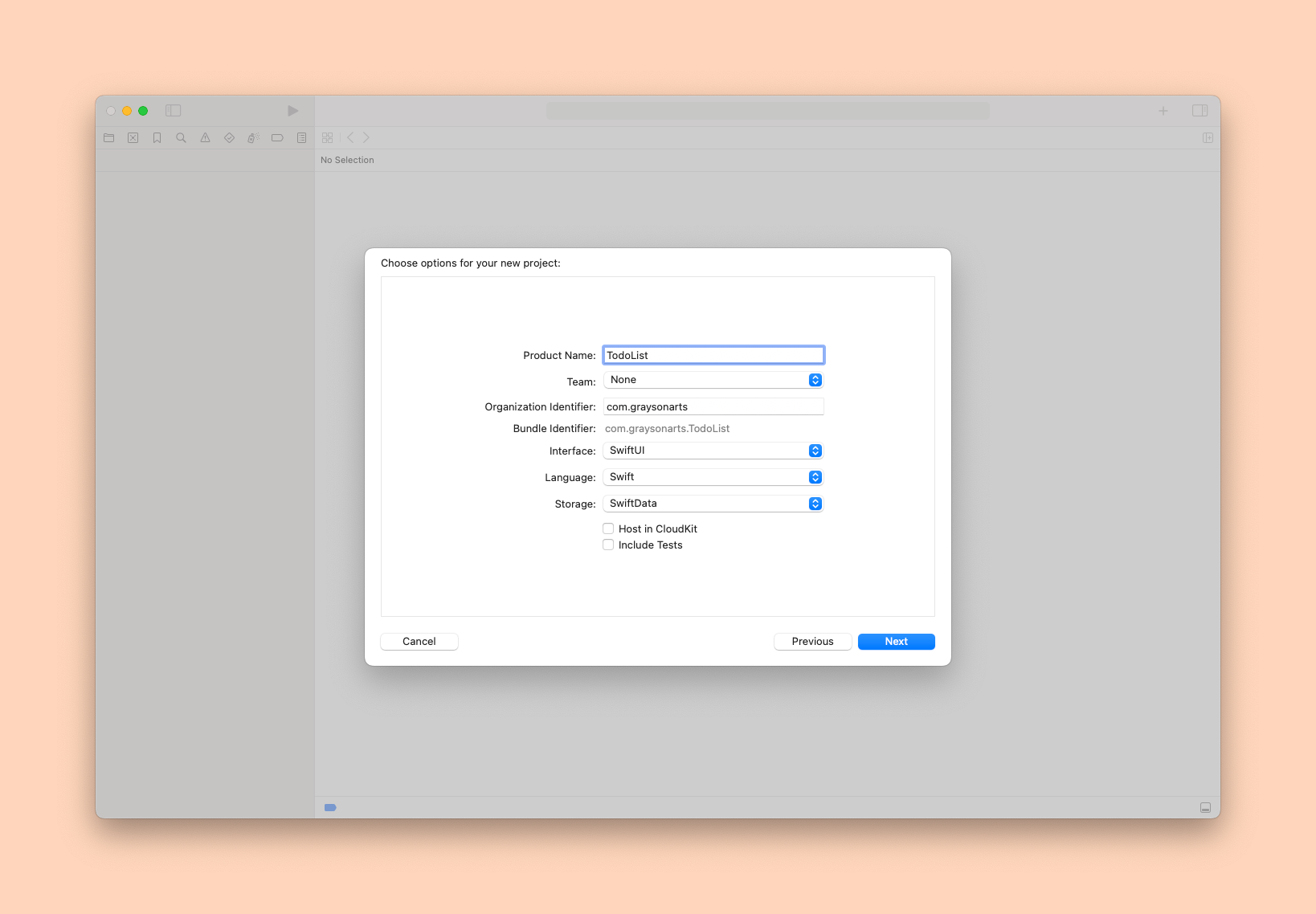
Create it next to your core-functionality crate
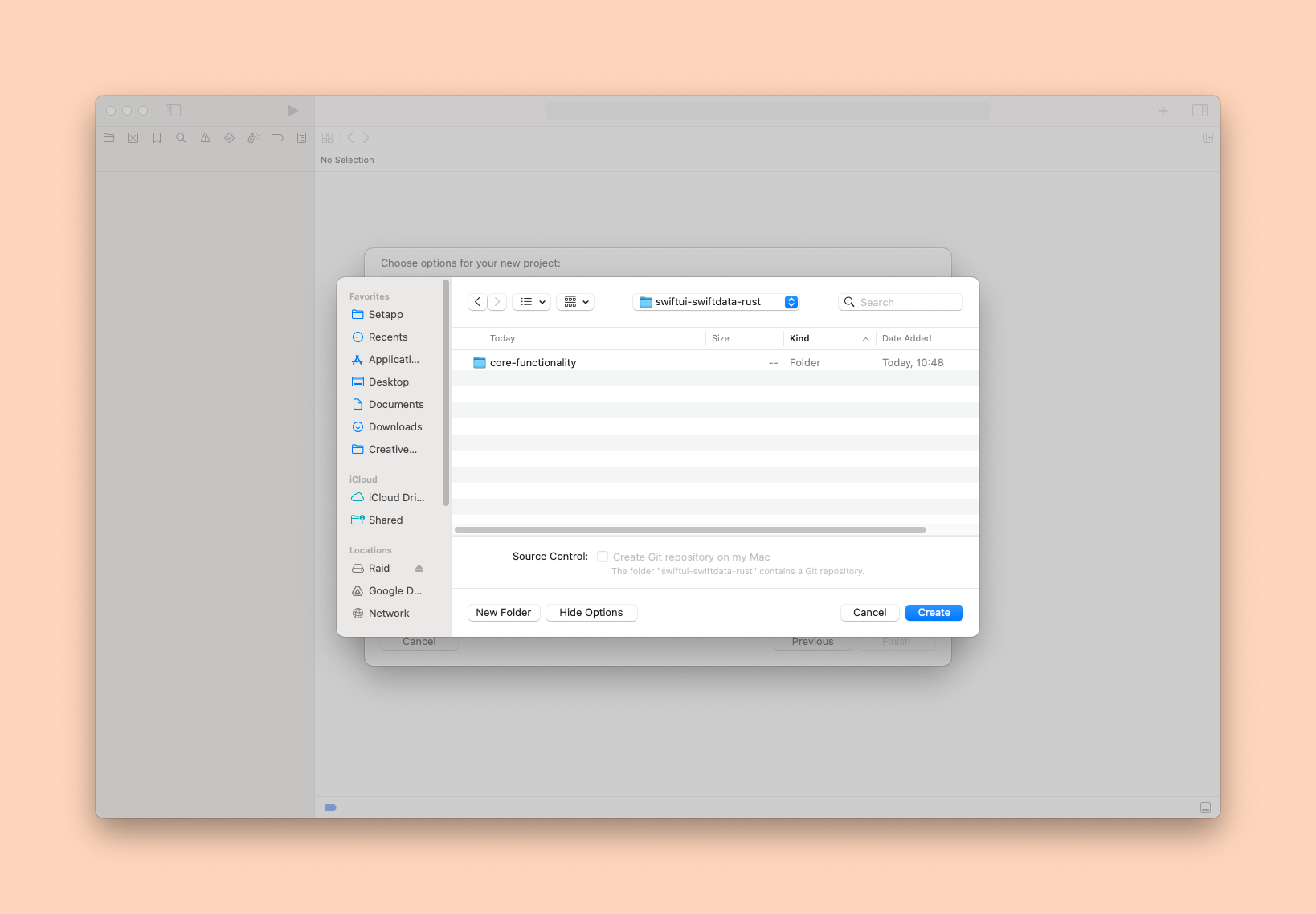
Configure xcode to include the crate output
Add a bridging header to the project
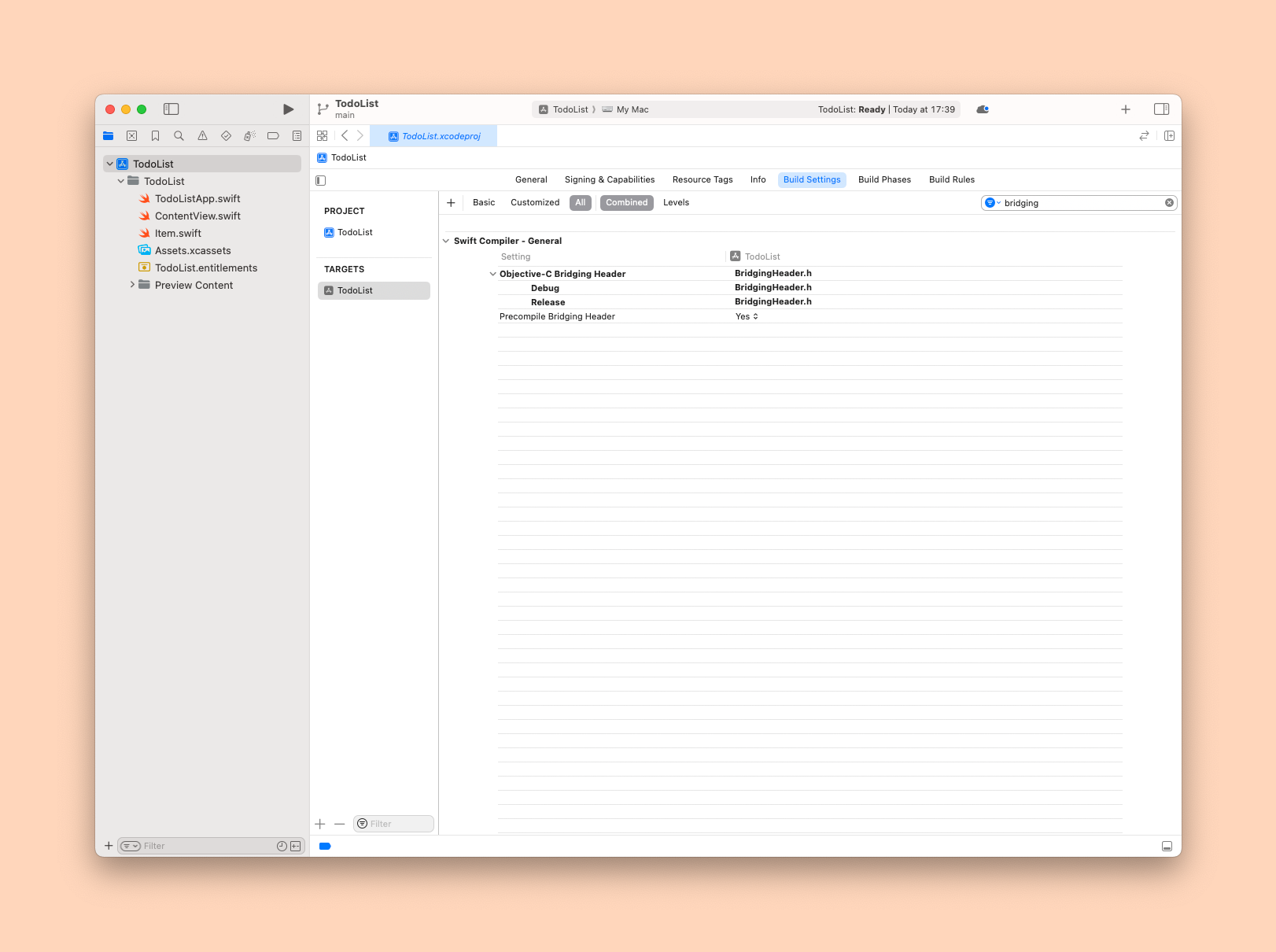
Add a build rule to generate the bindings
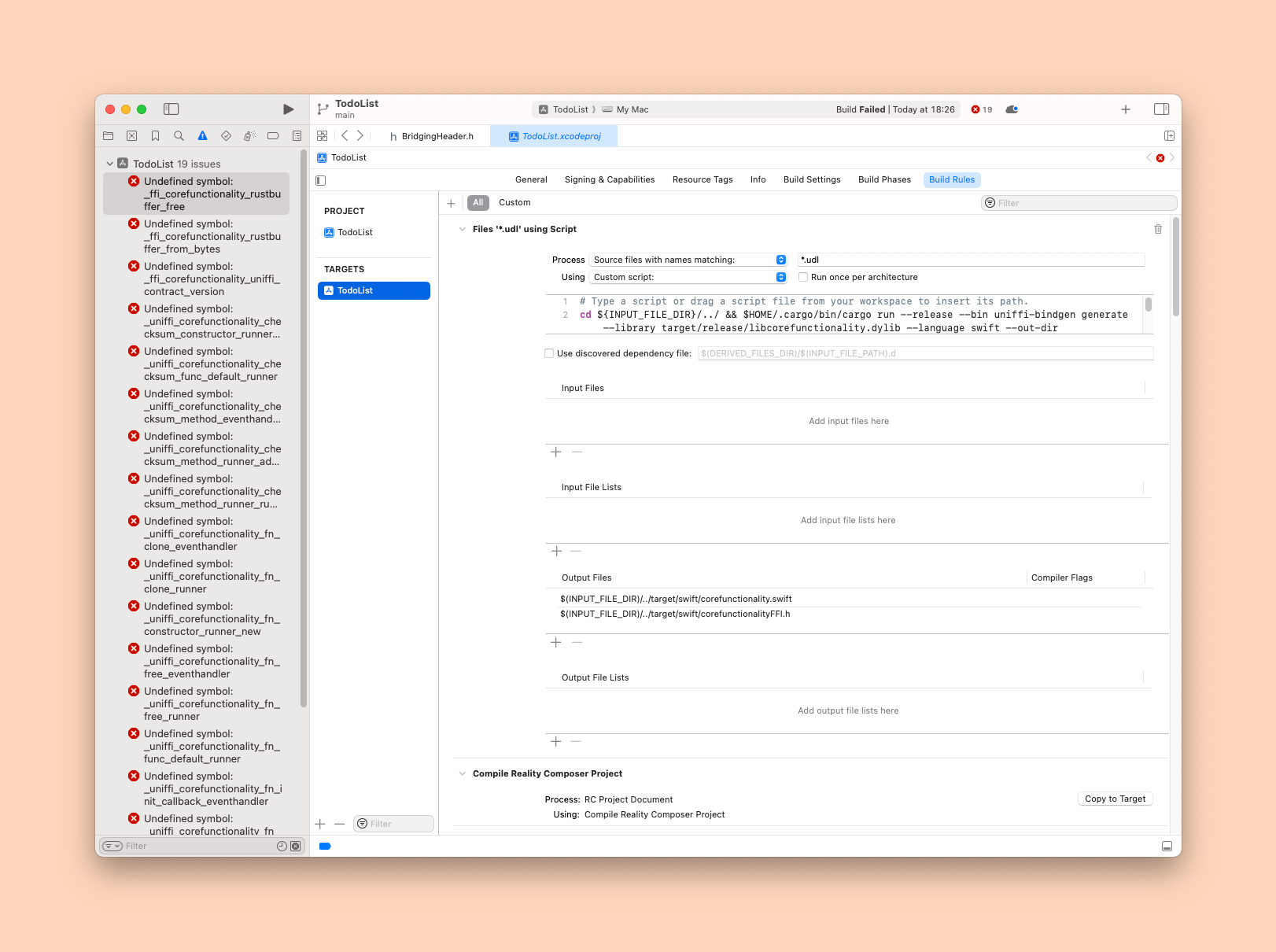
Add the .udl file to Compile Sources in the build phase
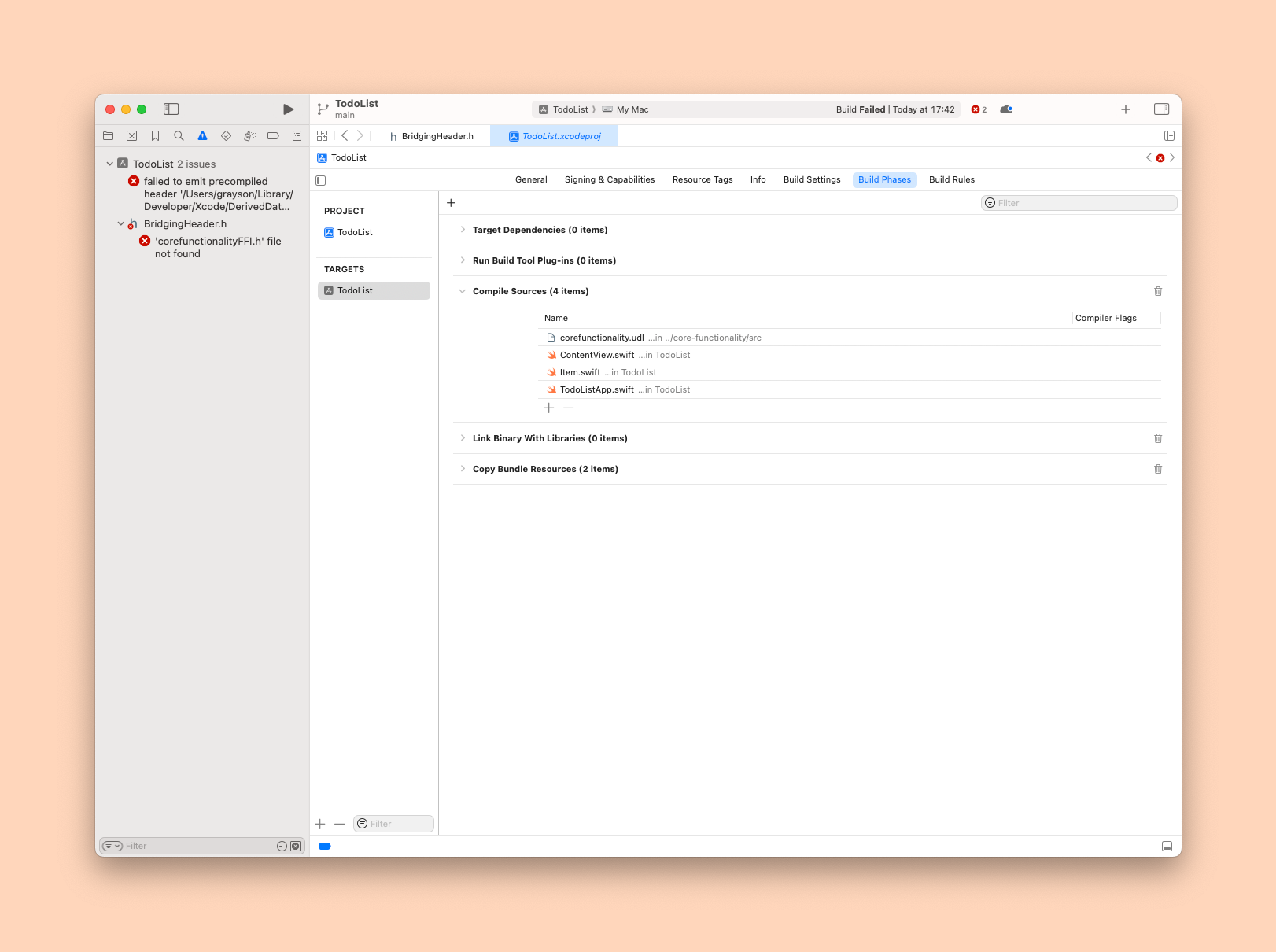
import your library header inside the bridging header
#ifndef BridgingHeader_h
#define BridgingHeader_h
#import "corefunctionalityFFI.h"
#endif /* BridgingHeader_h */
Add the library to your project
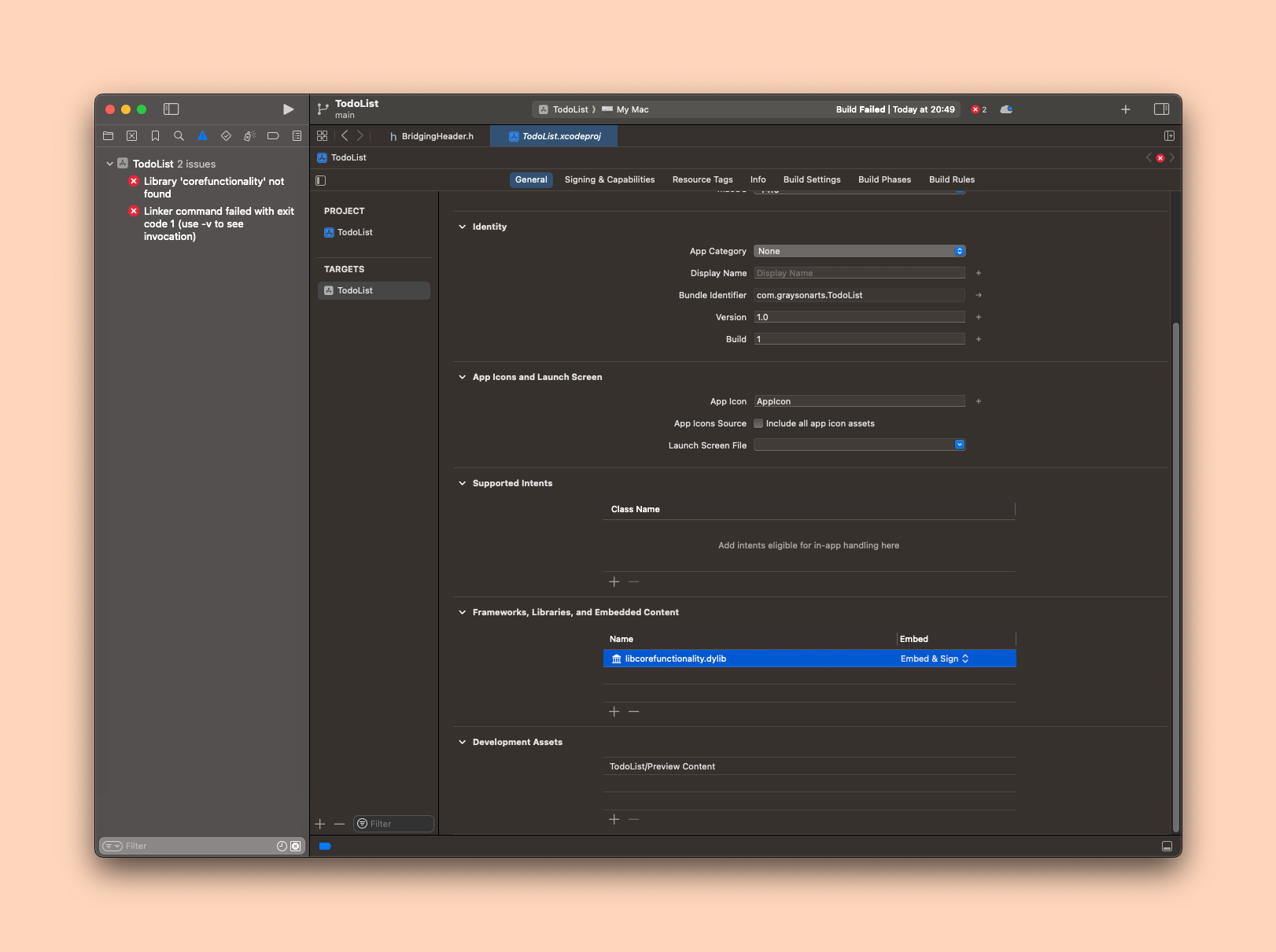
Add the path to the library search path
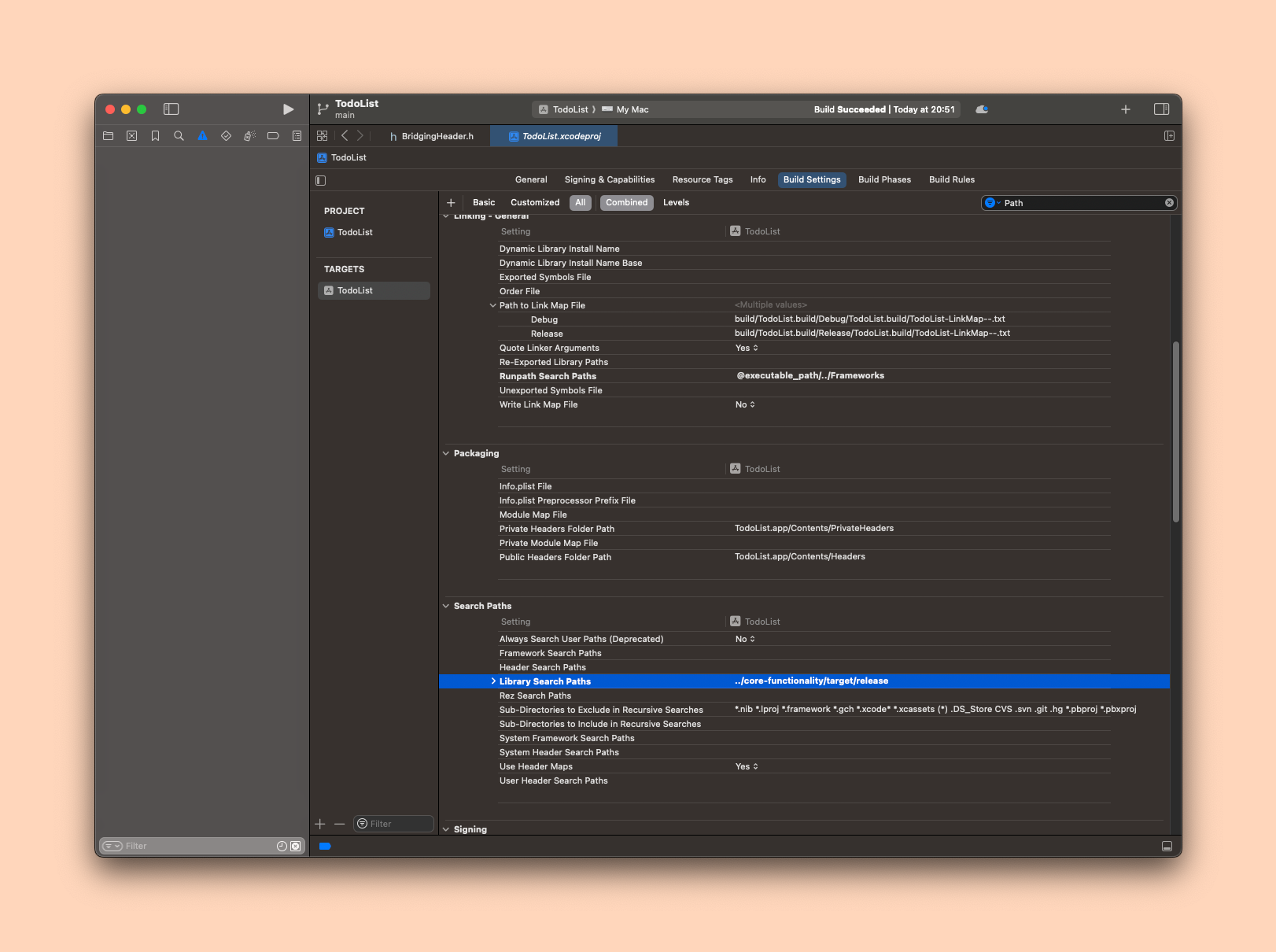
Now your project is setup!
Let's switch to Swift!
To the IDE
notes: Show the DomainCore.swift code